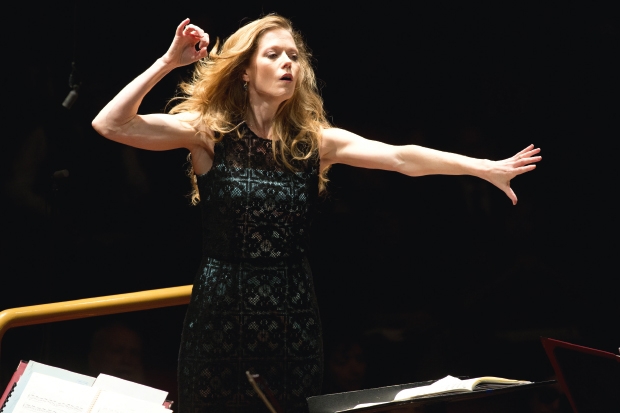Everyone keeps talking about classical music’s image problem, and proposals on the table designed to rescue the music from apparent extinction have included the suggestion that conductors ought to face audiences rather than orchestras, and the cunning plan, mooted by Julian Lloyd Webber, that we stop calling it ‘classical music’.
But what classical music really needs right now are more performers like Barbara Hannigan, whose embrace of music is absolute; whose solution to the problem of what classical music might represent in our increasingly fragmented culture is not to go into denial but to dive deeper, forever deeper, inside music. Hannigan has anchored her reputation around high-wire modernism. When a conspicuously frail Pierre Boulez came to London’s South Bank in 2011 for a final lap of honour, Hannigan sang Pli selon pli, his labyrinthine, tangled 60-minute long setting of Mallarmé.
On the opera stage, the characters she portrays have a tendency to plummet towards emotional collapse. In Berg’s Lulu and George Benjamin’s Written on Skin dark sexual derogation results in her characters’ suicides. In Die Soldaten, by the German composer Bernd Alois Zimmermann, who himself committed suicide in 1970, her character Marie does survive, but only to be marooned inside hell on earth, dodging brutalised soldiers whose collective morality has disintegrated to the point where rape is their only mode of communication.
So much darkness apparently, and yet the woman who greets me as I knock on the door of her central Amsterdam home exudes cheery, blithe warmth. This house was, she tells me, in a previous existence a piano workshop, a fact that was revealed by an old-timer local who could remember spare piano parts being passed through what is now Hannigan’s kitchen to a repair shop at the back — precisely where her own piano now stands, flooded by sheet music.








Comments
Join the debate for just £1 a month
Be part of the conversation with other Spectator readers by getting your first three months for £3.
UNLOCK ACCESS Just £1 a monthAlready a subscriber? Log in